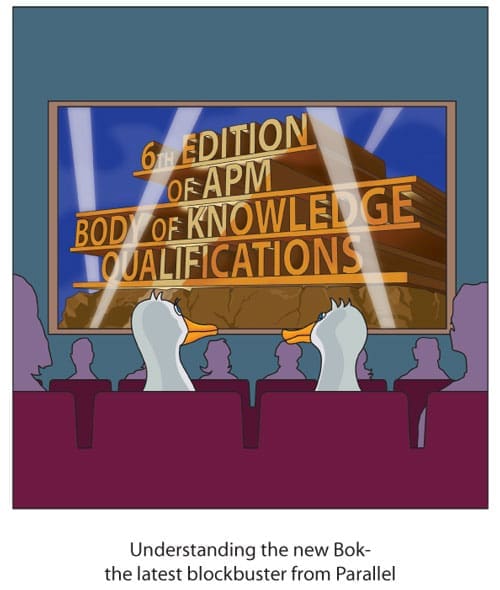When it comes to exams such as the APM PMQ from The Association for Project Management, there is always an element of repetition from one year to the next. That is to say, there are some questions that, whilst we cannot guarantee they will appear on the paper, we can venture with some degree of certainty the possibility that at least one of them will come up again.
Often referred to as “banker” topics, these are the questions that it is well worth looking for on several previous exam papers and then exploring the answers to. There is certainly nothing wrong in practising good answers for those questions that come up on a regular basis, marking them and then improving on them where necessary.
Past papers
Past exam papers, no matter which exam you are sitting are a very good resource that is available to everyone who is looking for revision resources. They will give you a good sense of how the exam is set out and the type of questions that you might expect to see. Taking a practice paper will allow you to gain a better understanding of the timings that you should attribute to each part of the paper and how you should structure your time. It is often possible to have access not only to the past paper itself but also to the answers. This is a great way of testing yourself in order to ensure that you are understanding the questions.
Consider your structure
Some of the questions you will encounter, for example, ‘List & Describe 5 Components of a project management plan’ on the APM Project Management Qualification exam paper, are in fact looking for a particular structure. Therefore, it can be well worth learning how to answer this type of question because you may encounter it in a number of different forms. Once you have listed each of the components in a project management plan then make sure you give enough detail in your description to justify the number of points that are allotted to the question.
If you have concerns about how you structure your answer to this type of question, then discuss it with your instructor and perhaps have them look over a sample answer to see if you have produced a good answer or if there are areas where you may be missing some information.
Describe Advantages of Effective Configuration Management
This is another of those questions that you might come across during your study for the APM PMQ, and whilst it certainly isn’t an easy one it is well worth a look.
What you should be thinking about is describing five different advantages that might be found in an effective configuration management system. Aim for a paragraph for each advantage with three sentences per paragraph. Consider what might happen to a project where there is no configuration management, and this will assist you in your answer.
Any of these types of question that requires 5 disadvantages or advantages should be answered with a short paragraph of 2-3 sentences per advantage or disadvantage. This is the format that is well worth remembering. Putting too many sentences risks adding unimportant information that could eat into your time. Put too few sentences and you risk missing important information.
Important things to consider
Whilst not everyone passes their exams the first time round there are a good percentage that do and for the most part, this can be attributed to knowing the course content.
This means looking at past questions and really studying the way in which the questions work in terms of their answers. This is important because you have limited time during an exam to complete all of the questions so if you want to ensure that you are giving as much pertinent information as possible and not wasting your time with information that is not needed.
It can be frustrating when you think you have written a really good answer to a question only to discover later that in fact, you missed out on a really important piece of information. Feedback from previous candidates flags a couple of such issues that can easily be avoided.
The first is when the question asks for the candidate to list and describe, write the list and then describe each one. Missing the list can mean missing out on important marks. Reading the questions properly is also a must misreading disadvantages for advantages can completely redefine how you answer the question, and it may be hard for what you write to gain any marks at all. This simple misreading of a question is an unfortunate circumstance that can be really easily avoided.
When you are completing a list-and-describe type of question, don’t forget to provide further explanation of the issue and also examples to illustrate your point. This will help to show a greater understanding of the question.
These may all be relatively small points to consider when answering your exam questions. However, a few small points can quickly add up and the end result can be a loss of enough points that you do not end up passing your exam. And whilst this isn’t the end of the world because you can learn from these mistakes before retaking the test, there can be financial implications as a result of not passing.
The first is of course that you will need to pay the relevant fees in order to resit the exam. The second is that not passing the exam may have implications for those who are looking to make a career move to a new role. With so many project management roles available it is possible that potential employers may overlook some candidates in favour of those who not only have all of the relevant on-the-job experience but also hold the relevant paper qualifications as well. Whilst this shouldn’t hold you back for long it can be an annoying factor that can result from not passing your exam.



